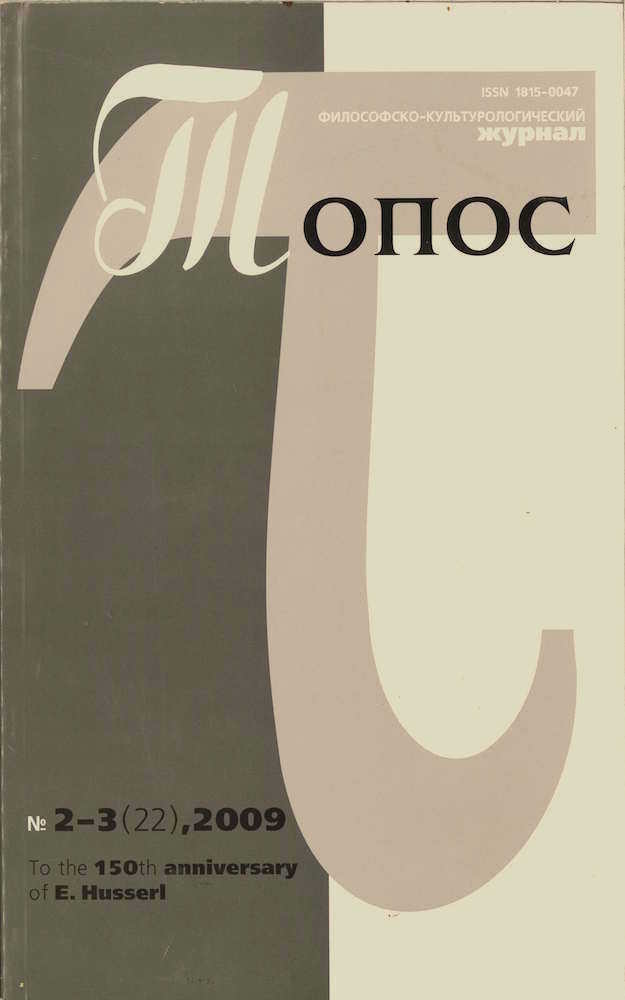Husserl’s phenomenology in the light of Eugen Fink’s critique and the contemporary discussions
Article
Abstract
[In Russian]
The article considers Fink’s interpretation of Husserl’s philosophy and it is compared with some modern approaches to Husserl’s philosophy. According to Fink the primary goal of phenomenology is the research of one real – visual environment – by means of the other real – transcendental consciousnesses. The author considers that Fink’s understanding of Husserl’s philosophy corresponds to the certain strategy of the phenomenological researches directed at studying of experience of ordinary consciousness and experience of a daily life. For example, a modern Russian phenomenologist V.I. Molchanov adheres to this strategy. The article analyses also the other understanding of phenomenology according to which phenomenology is the general non-contradictory exact science based on the research of the transcendental consciousness. In this case the visual environment is reduced and forgotten, and the phenomenologist deals only with the world legally constituted in consciousness. The author of the article tries to show legitimacy of both approaches basing on Husserl’s texts. Thus the special attention is given to Fink’s explanation and interpretation of transcendental phenomenology in the VI Cartesian meditation. The author tries to show that Fink distinguishes important methodological moments in Husserl’s phenomenological analysis on which the founder of phenomenology did not fix his attention. First of all, it is a question of special, «intermediate» status of the researcher who carries out phenomenological reduction and of conditionality of the phenomenological research itself by means of the natural aim. The author also addresses various problems of the phenomenological approach and considers the ways of their solution from the point of view of the designated approaches to phenomenology: to the problem of reduction, the motive of transition into the phenomenological aim, to the concept of «an exact science», to the problem of the existence of the world.
Downloads
This journal allows the author(s) to hold the copyright without restrictions. Topos Journal uses CC BY-NC-ND 4.0 license (license URL: http://creativecommons.org/licenses/by-nc-nd/4.0).



